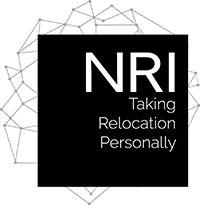Americans are more mobile than ever before, and if your relocation is work-related, you can grab a few tax breaks and write off some of those relocation expenses, courtesy of Uncle Sam.
Whether your move is for another job within your company, the same job in a different location, a new job, or even your first job, as long as you meet the IRS requirements, you can shave off a few bucks at tax time.
The first requirements you have to meet are the distance and time requirements.
Most relocating employees meet the distance requirement easily. Simply put, the location of your new job or workplace must be at least 50 miles from the location of your previous residence. The 50 mile radius is just the IRS’s way of making sure you’re not taking a tax deduction just because you found a new place to live that cuts a couple of miles off your usual commute. Since most employee relocations are at least 100 miles or more from their old location, this requirement isn’t usually a problem.
The second requirement you need to meet is the time requirement: you must work full-time for at least 39 weeks in the first 12 months after your move. Again, this is Uncle Sam’s way of making sure you’re not taking a tax break for taking a travelling vacation.
Once you meet these two requirements, you can deduct the costs of moving your household goods, (including transporting your car and your pets), storing your belongings for the first 30 days, and the expenses for the final move of yourself and your family (airfare or mileage and one night of lodging in old and new locations).
By now you’re probably wondering how to shave some of your expenses of the biggest cost of employee relocation – the purchase and sale of a home. That’s where a corporate relocation company can provide services you’ll find very useful…
A corporate relocation company can offer a structured home sale service that reduces the tax burden to the relocating employee. Since the home sale is one of the largest expenses, it is definitely worthwhile to find out if your company’s relocation program or employee relocation service company offers a qualified home sale program. It could save you thousands at tax time, if they do!
A few other things to remember about deducting relocation expenses for your employee move:
– Keep your receipts! You will have to use the long form 1040 to claim your moving costs, even if you don’t itemize any other deductions.
– If you’re married and file jointly, only one spouse needs to meet the time and distance tests. However, if you and your spouse are both employed in the new location, you cannot combine the weeks your spouse worked with the weeks you worked to satisfy the time component.
– If your employer reimburses you for some or all of your transfer or moving costs, you cannot deduct those expenses.
To find out more about taxable and non-taxable employee relocation expenses, contact your tax professional. Or, just give us a call: 1- 800-598-8887.
Pete Schroeder is the Director of Financial Services at NRI Relocation, a full-service employee relocation management company.


